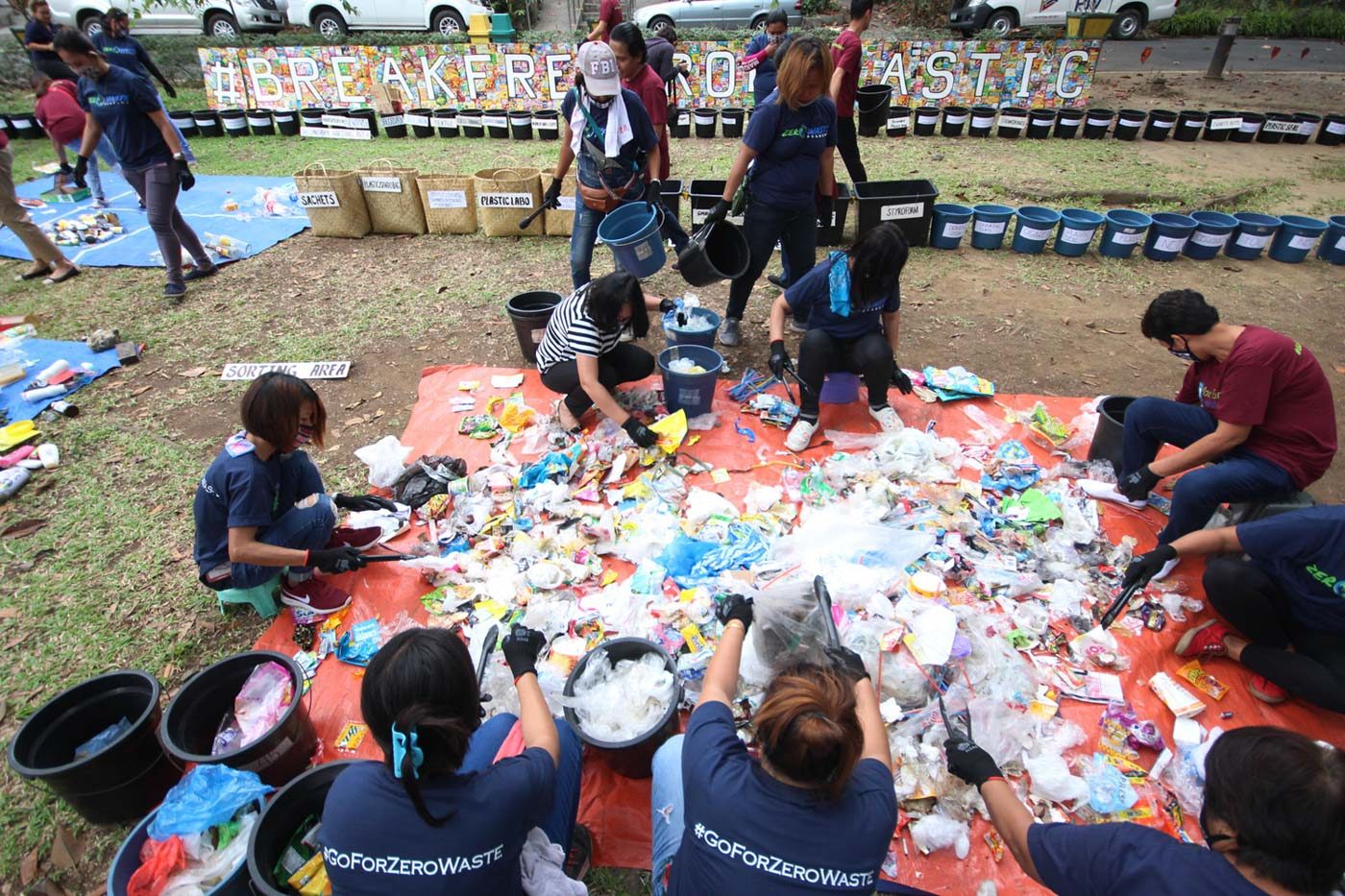SUMMARY
This is AI generated summarization, which may have errors. For context, always refer to the full article.

MANILA, Philippines – Environmental groups have called for “drastic solutions” to the problem of plastic pollution, especially in the Philippines, which is among the top sources of such waste.
Environment Secretary Roy Cimatu had already sounded the alarm on the threat of plastic pollution, as he called on Filipinos to do their part in saving the world’s oceans.
In a statement on March 11, in making World Wildlife Day, Cimatu urged Filipinos to cut down on plastic use to reduce the threat to marine life. (READ: Philippine survey shows ‘shocking’ plastic waste)
He said that plastic pollution is one of the greatest threats to ocean health worldwide as an estimated 8 million tons of plastic waste find its way into seas every year, adding to the estimated 150 million tons of plastic in the world’s waters.
The Philippines is one of the top contributors to plastic pollution, generating 2.7 million tons of plastic every year.
“Following this trajectory of plastic production and mismanagement, UN reports predicted that by 2050, there will be more plastic in the oceans than there are fish,” Cimatu said in a statement. (READ: Dead whale in Compostela Valley had 40 kilograms of plastic in stomach)
“The task of reversing this issue is as big and wide as the ocean, but small actions can make a huge difference,” he added.
Drastic solutions needed
Greenpeace cited some “small things” everyone can do to curb plastic pollution. (WATCH: What you can do about plastic pollution)
“There’s always small things that people can do, like refusing straws when you go out, bringing your tupperware, brining your own eco-bag, reusable vinyl. I think those are a given but it’s very simple. People can always do it together,” said Abigail Aguilar, campaiger for Greenpeace Philippines.
She told Rappler that while their recent call was to ban single-plastic use, they’re not against “all kinds of plastic.”
“We recognize that plastics are always used in other industries but we are against single-use plastics,” she said.
Early this month, Greenpeace began its campaign against single-use plastics. But the organization had targetted multinational companies more, being the biggest source of single-use plastic.
“[I]t was mentioned earlier that the sachets are only for classes C and D. It’s not. Because when you go to the supermarkets, it’s available. Even when you want to find something that is not in plastic, that is not in sachets, you have no choice,” Aguilar said.
“They’re not giving us options. It’s really made for marketing; it’s really made for them to produce more and it’s not really consistent in their saying that it’s a pro-poor choice because even if you have the money, you still don’t have a choice,” she added.
Aguilar said the plans of fast-moving consumer goods manufacturers to take back their sachets and recycle it, would not solve the problem of plastic pollution fast enough.
“We cannot recycle our way out of this problem, with how massive it is right now, recycling can’t solve this. We need to really have drastic solutions to solve this,” she said.
What about paper?
When people opt to reduce plastic use, a number turn to paper, which environmental groups don’t consider as a solution.
Beau Baconguis, regional coordinator for the Break Free From Plastic movement, told Rappler that using paper in favor of plastic is a false dichotomy. By using paper, Baconguis said that this also creates waste.
“The goal is to reduce waste entirely,” she noted.
Aguilar also echoed this sentiment, calling paper as another “problematic” product.
“It’s not that reliable. You have to cut trees. You’re just replacing a material with another problematic material. It’s not just because you change materials, you already solved the problem,” she added.
Instead of replacing paper with plastic, Aguilar noted that it’s a better choice to reduce the use of anything that will generate waste.
She also urged people to implement a “reuse system.” “If you use plastic, make sure that it’s still reusable for a long time,” Aguilar said. – Rappler.com
Add a comment
How does this make you feel?
There are no comments yet. Add your comment to start the conversation.